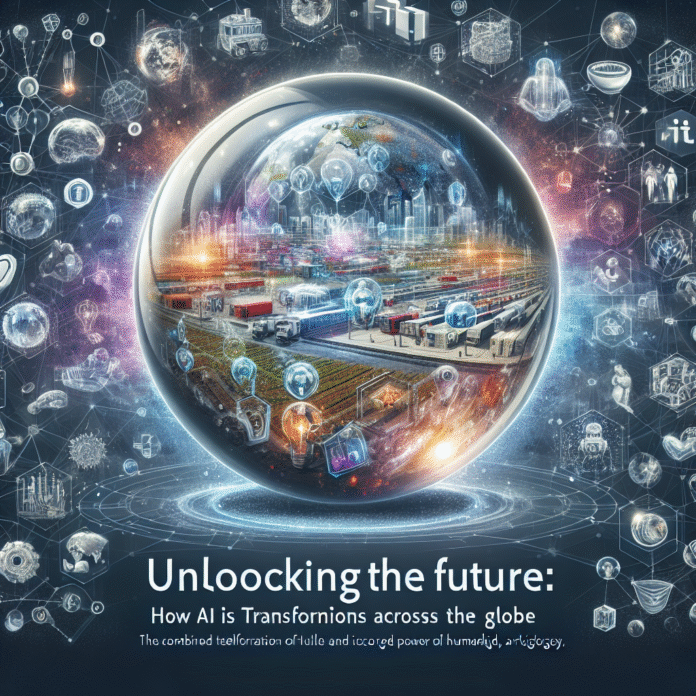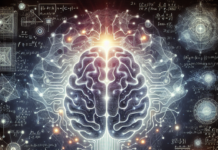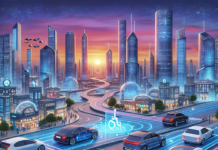Unlocking the Future: How AI is Transforming Industries Across the Globe
Artificial Intelligence (AI) is one of the most transformative technologies of our time. From healthcare to agriculture, finance to education, AI is altering the way industries operate, enhancing efficiency, and unlocking unprecedented opportunities. As it continues to evolve, AI is not only shaping the future of business but is also redefining human experiences in ways we’ve yet to fully comprehend.
Revolutionizing Healthcare
AI’s impact on healthcare is profound and multifaceted. Machine learning algorithms are enhancing diagnostic capabilities, predicting disease outbreaks, and personalizing treatment plans. For instance, AI systems can analyze medical images like X-rays and MRIs with accuracy that often surpasses human specialists. Technologies like IBM Watson are assisting doctors by providing them with real-time data analysis, enabling informed and speedy decision-making.
Moreover, AI chatbots and virtual health assistants are transforming patient interactions, offering 24/7 support and triage capabilities that relieve pressure from healthcare professionals. As a result, patients enjoy enhanced access to medical guidance and care, making healthcare more efficient and effective.
Redefining Finance
In the finance sector, AI is paving the way for smarter investments and better risk management. Algorithms are analyzing market trends and consumer behavior to identify investment opportunities and automate trading—all in a fraction of the time it would take a human analyst.
Moreover, AI-driven chatbots and virtual assistants are improving customer service, facilitating quicker responses to inquiries, and managing simple transactions without human intervention. Fraud detection is another area where AI excels; machine learning models can analyze transaction patterns and flag unusual activities, thereby protecting financial institutions and consumers alike.
Transforming Agriculture
Agriculture is experiencing a technological renaissance, with AI at its core. Precision agriculture uses AI to optimize planting, watering, and harvesting schedules. Drones equipped with AI capabilities are being deployed to monitor crop health, analyze soil conditions, and make data-driven decisions on resource allocation.
For livestock management, AI tools are tracking animal health and behavior, ensuring better welfare and productivity. As a result, farmers are not only increasing yields but also reducing environmental impacts, thus promoting sustainable farming practices.
Enhancing Education
In education, AI is personalizing learning experiences for students around the globe. Adaptive learning platforms analyze student performance and customize content to match individual learning paces and styles. This approach fosters engagement and enhances outcomes, particularly for those who struggle with traditional teaching methods.
AI is also facilitating administrative tasks through automation, enabling educators to focus more on teaching rather than paperwork. From grading to scheduling, AI streamlines operations, making educational institutions more efficient and student-centered.
Advancing Manufacturing
The manufacturing industry is undergoing a significant transformation driven by AI and automation. Predictive maintenance powered by AI algorithms helps manufacturers anticipate equipment failures before they happen, minimizing downtime and extending machinery lifespan.
Robotics integrated with AI are enhancing production lines’ speed and precision. These “smart” machines learn from their environments and improve their operations over time, enabling manufacturers to achieve higher productivity rates while maintaining quality control.
Addressing Ethical Considerations
While AI presents exciting possibilities, it also raises critical ethical questions. Issues such as data privacy, algorithmic bias, and the potential for job displacement must be addressed as AI technologies continue to proliferate. Businesses and policymakers need to establish guidelines that ensure ethical AI development and deployment, fostering trust and equity in all sectors.
Conclusion
As AI continues to evolve, its transformative effects will permeate every industry, unlocking new levels of efficiency, customization, and innovation. While challenges remain, the potential to improve lives and create sustainable practices is immense. Embracing AI responsibly will shape a brighter future, one where industries flourish, and human potential is fully realized. As we stand on the brink of this new era, the question isn’t whether AI will transform industries globally; it’s how quickly and ethically we can harness its power for the greater good.
More related articles- Artificial Intelligence (AI) is no longer just a futuristic concept—it is a driving force reshaping the very fabric of global industries. From healthcare and finance to manufacturing and transportation







